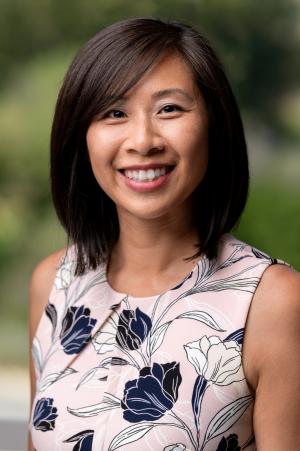
Communication Breakdown

When immigrant families are forced to live apart — as they search for better wages or schools, as they escape violence or political turmoil — communication across great distances is often the last thread holding them together.
Take, for example, the common occurrence of a parent leaving their spouse and children behind in their home country to stake out a better life for their family in the U.S. How family members work together to communicate and manage ups and downs can ease the burden of separation.
To help identify and address the challenges faced by such families, UC Santa Barbara’s Pahl Initiative on the Study of Critical Social Issues has awarded its annual grant for 2022-2023 to Jennifer Kam, a professor and vice chair in the Department of Communication, as well as a faculty affiliate of the Chicano Studies Institute and the Migration Initiative.
“Once again, the Pahl Initiative has allowed us to zero in on a critical problem in our society, and to showcase the contribution of rigorous social science research, both to understanding its causal roots and to providing evidence-based remedies,” said Charles Hale, the SAGE Sara Miller McCune Dean of Social Sciences. “I am thrilled that Professor Kam has been chosen to receive this prestigious award because her topic is so important and her methods — drawn from communication studies — are so apt for engaging the difficult questions posed by family separation.”
Focused on families in different Latin American countries, Kam’s two-year immigration study will dissect the nature of the communication between parents, primary caregivers and their children, as each family member copes with the related stress and uncertainty of separation.
“From our past work, we found that immigrant parents and their partners in the home country reported numerous stressors, such as having to adapt to a new country with limited resources, working long hours in difficult jobs and caring for children alone and without many resources,” Kam said.
These findings were part of a recently published community-engaged pilot project that Kam conducted in partnership with Roselia Mendez Murillo, an assistant professor of communication at the University of Texas, Austin.
“Family members did not discuss their stressors among themselves because they did not want to burden each other,” Kam said. “My team and I aim to identify different forms of family communication that can be constructive to their relationships and wellbeing.”
While the pilot included 20 families, the Pahl-funded project will survey upward of 85 families to unpack key inroads as family members advocate for their needs.
“We suspect that constructive communication includes active listening, responsiveness, expressing gratitude for their partner’s contributions to managing the separation and validating their experiences and perspectives,” Kam explained. “However, we do not know what each family member specifically desires in terms of support. We do not know what gaps exist between what they receive and what they want and do not want. That’s why this Pahl Initiative project is needed.”
Beyond the interactions between family members, the study will also examine what separated families need at the community and policy levels.
To help refine her approach in the early stages, Kam is working with UC Santa Barbara doctoral students and undergraduate students from different disciplines — including counseling, psychology, brain science and communication — who are also from families that have experienced migration-related separation.
Kam has also been able to identify valuable resources — such as local community organizations that work with immigrant families — through the Scholars Strategy Network, a nonprofit that channels the expertise of scholars nationwide to help solve policy problems.
The Pahl Initiative — created with a $1.1-million gift from alumni Louise and Stephen Pahl — was launched in 2019–2020 with a study on gun violence. Past recipients have also studied housing and the impact of the pandemic on underserved populations.
“The Pahl Initiative hits all the marks of our highest aspirations for the Division of Social Sciences,” Hale said. “Indeed, the Pahl scholars have helped us to further define and refine those aspirations. We seek to support problem-driven research to generate impactful, publicly facing results, involving students in the research process as an exemplar of experienced-based learning. Now entering our fourth year, we can conclude with confidence that the Pahl Initiative concept has been proven, laying the groundwork for an exciting and generative expansion of the program.”



